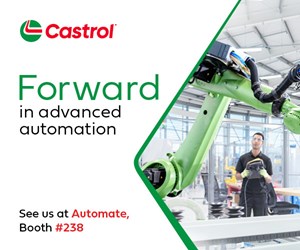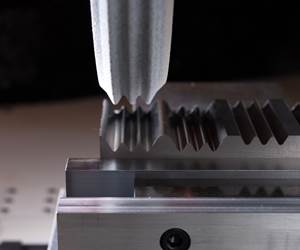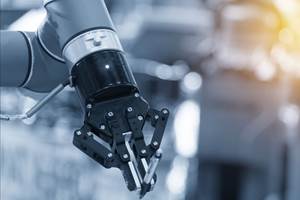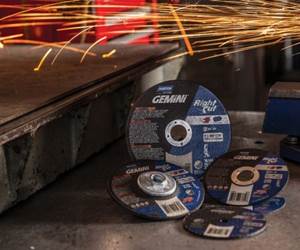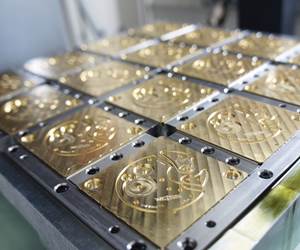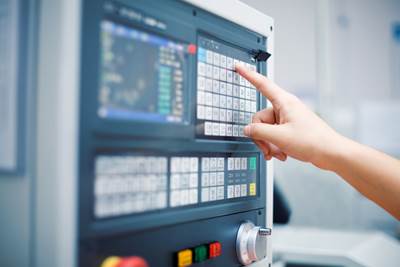Semiconductor manufacturing is an involved process that depends on advanced technology and relies on complex parts with extremely tight tolerances to produce the tiny wafers that modern life depends on.
With the 2022 passage of the CHIPS and Science Act, the United States government is committed to invest billions of dollars in subsidies to encourage the manufacturing of microchips and semiconductors inside the U.S. As the law benefits chip manufacturers, many contract manufacturers anticipate growing demand in the semiconductor industry, which means more opportunities for enterprising machine shops.
AccuRounds specializes in the production of small, round parts with extremely tight tolerances. This has served the company well in producing parts for the semiconductor market.
Recently, I spoke with AccuRounds President and CEO Michael Tamasi, whose Avon, Massachusetts, machine shop was honored by the MMS Top Shops program in 2021. In addition to other end markets, AccuRounds has serviced the semiconductor industry for over four decades, and I wanted to know if he had any advice for shops looking to enter the industry.
MMS: Hi Michael. Could you give us a brief introduction to you and your shop?
MT: Hi, I’m Michael Tamasi, President and CEO of AccuRounds. We’re an advanced manufacturer performing contract precision machining for medical, aerospace, semiconductor, oil and gas, robotic, emerging tech and many more industries.
MMS: There’s a general impression that semiconductors are a hot market today. Have you seen an uptick in the customer demand for parts in the semiconductor industry?
MT: With the CHIPS Act, you’d think there’d be more activity. The semiconductor industry is very cyclical, but it’s been less cyclical in recent years. The last two years have seen a long-lasting surge, but recently it’s been softening. However, I expect that to be short-lived, and we are still getting a lot of work from within the country.
The softening is likely due to over-ordering during COVID, so we’re seeing a short-lived slowdown.
MMS: Basically, it’s a market correction.
MT: Exactly.
MMS: Do you think the CHIPS and Science Act is making a difference?
MT: Yes, at a higher level, but it hasn’t hit us yet. I think as orders come down the line, we’ll see the effects.
AccuRounds performs a wide range of machining operations at its 45,000-square-foot facility in Avon, Massachusetts. Much of the semiconductor work occurs on its Swiss-type turning machines, but it also has cells dedicated to grinding, as well as CNC turning and milling.
MMS: Generally speaking, machine shops are not equipped for manufacturing actual semiconductors. What kind of parts are machine shops making for producing semiconductors?
MT: Components that go into products that surround or go inside the chambers that are used to manufacture chips. It could be products that move the silicon wafers through the manufacturing process or parts that control air flow and gas flow. Temperature control is also important when you manufacture computer chips.
MMS: What sort of processes would a shop getting into this end market want to focus on? Turning? Micro-milling? Grinding?
MT: The typical tools that we have. Lathes, mills. There’s some advanced finishing. We don’t call our finishing department Deburring anymore; it is Advanced Finishing.
MMS: Why is that?
MT: Finish callouts can be extremely high, and depending on the finish you need, that frequently means hand-polishing. Not every part can be finished on a machine. There are certain nubs and features that a grinder just can’t handle.
MMS: What kind of finish are we talking about?
MT: 4 Ra is a pretty typical finish.
The tolerance and the finish callouts on some difficult materials really take it to the next level. They’re just tough to machine. There’s a lot of R&D to figure out how to finish. Tooling is important. And tool wear. Parts can really eat up tools if you’re not careful.
MMS: What do you look for in a machine tool intended for serving the semiconductor market?
MT: The flexibility of the machine from a tool position standpoint. Especially with a Swiss-style machine, it’s gang-style versus turret. It’s important where the tool’s positions are for back-working, and how many tools there are. Do you need four positions, six positions, eight positions?
Especially with mill-turn equipment, you need eight-axis or twelve-axis machines, and you need to determine how best to approach and orient the part.
MMS: Do you have any advice for someone looking to get into semiconductor manufacturing?
MT: Be cautious. Don’t underestimate the requirements. Make sure you have a good relationship with not only the buyers, but the engineers and quality groups. There are going to be technical questions and you need to be able to learn. Start out slow, don’t bite off more than you can chew, and give yourself the chance to grow.
And don’t underestimate advanced finishing.
Related Content
10 Things to Know About Creep-Feed Grinding
Because of the high material removal rate creep-feed grinding can deliver in challenging materials, grinding might not be just the last step in the process—it might be the process.
Read MoreChoosing a Five-Axis Machine Tool With Automation in Mind
While much focus is placed on the machinery that moves parts, the features most important for automating five-axis machining are arguably found in the machine tool itself.
Read MoreGrinding Wheel Safety: Respect The Maximum Speed
One potential source of serious injury in grinding comes from an oversight that is easy to make: operating the wheel in an over-speed condition.
Read MoreWatchmaking: A Machinist’s View
Old-world craftsmanship combines with precision machining on a vertical machining center and Swiss-type lathe to produce some of the only U.S.-made mechanical wristwatch movements.
Read MoreRead Next
Seeing Is Believing: 3D Vision System Enables Bin-Picking Robot
With the help of a 3D vision system and robotic arms from FANUC, MetalQuest was able to automate a physically challenging bin-picking task.
Read MoreObscure CNC Features That Can Help (or Hurt) You
You cannot begin to take advantage of an available feature if you do not know it exists. Conversely, you will not know how to avoid CNC features that may be detrimental to your process.
Read More3 Mistakes That Cause CNC Programs to Fail
Despite enhancements to manufacturing technology, there are still issues today that can cause programs to fail. These failures can cause lost time, scrapped parts, damaged machines and even injured operators.
Read More





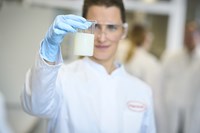
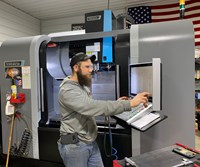
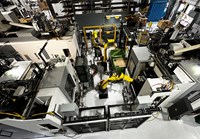


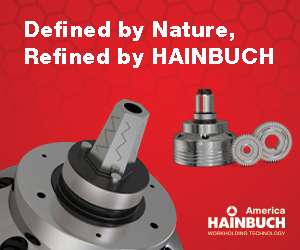

.png;maxWidth=300;quality=90)

 – Medium Rectangle (1).png;maxWidth=300;quality=90)



